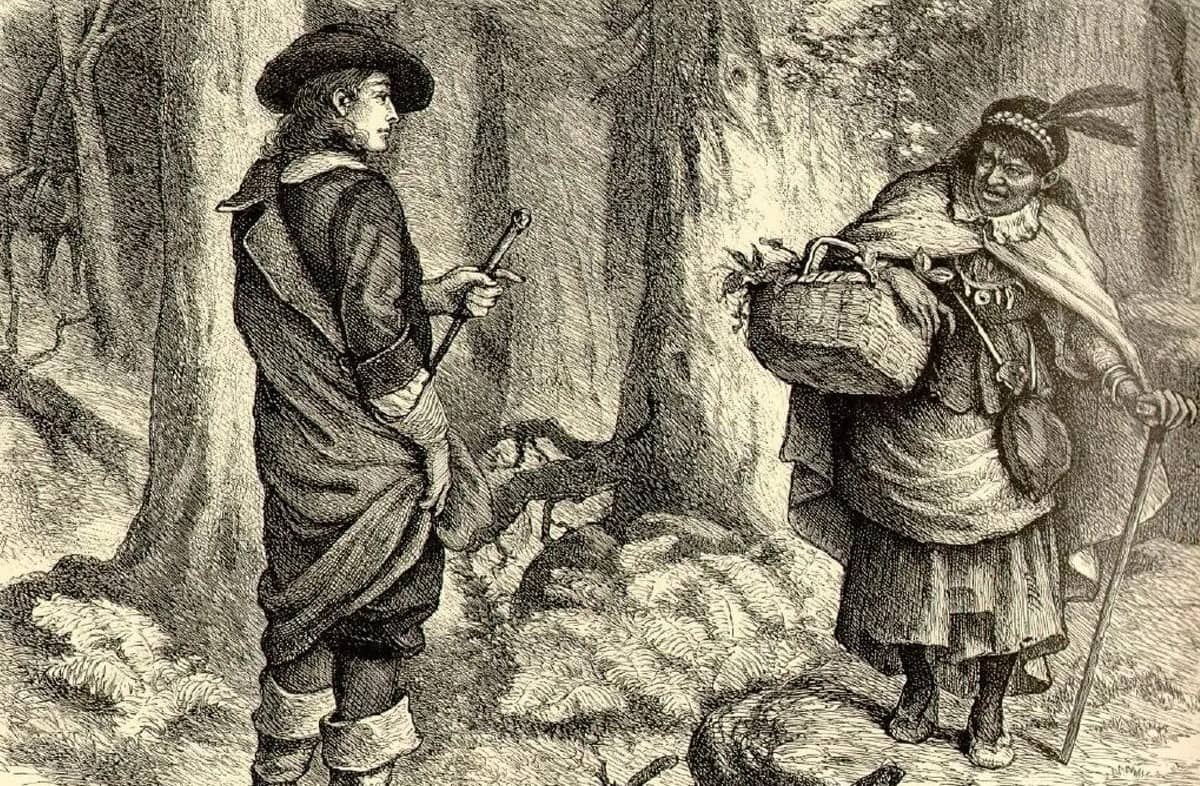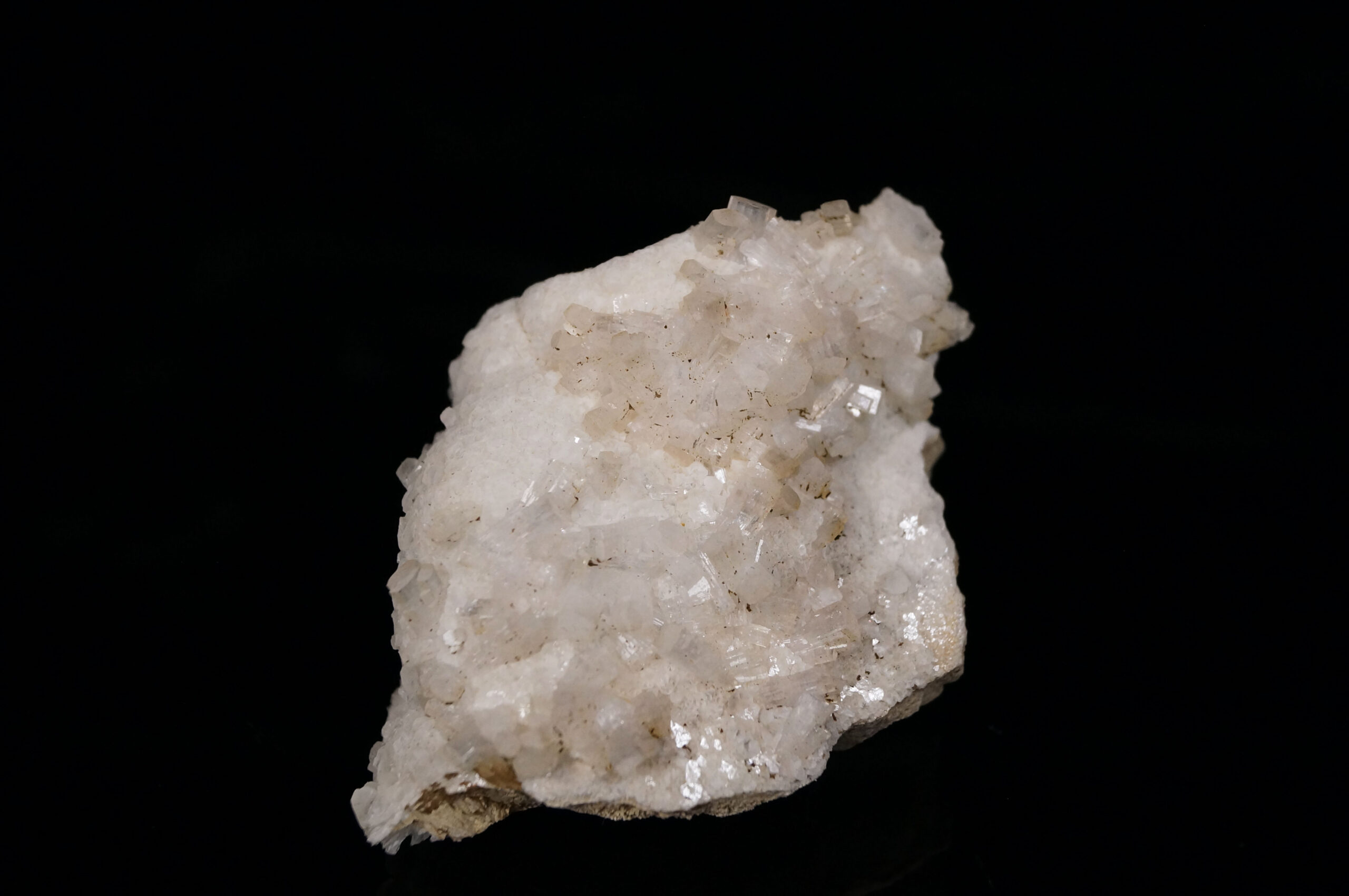
Who was Tituba? Tituba, a name that echoes through the annals of history, was an enslaved woman of African and possibly Native American descent. She played a pivotal role in the infamous Salem Witch Trials of 1692. Why is she significant? Tituba's confession to practicing witchcraft ignited a frenzy of accusations and trials that led to the execution of 20 people. Her story is a blend of mystery, fear, and cultural clash. What can we learn from her life? By examining Tituba's life, we gain insight into the complexities of colonial America, the power dynamics of slavery, and the hysteria that can arise from fear and superstition.
Key Takeaways:
- Tituba, an enslaved woman of mixed African and Indigenous heritage, played a pivotal role in the Salem Witch Trials, sparking mass hysteria and accusations. Her story sheds light on the complexities of race, gender, and power in colonial America.
- Tituba's legacy serves as a cautionary tale about the dangers of mass hysteria and the scapegoating of vulnerable individuals. Her experiences highlight the harsh realities of slavery and inspire discussions about social justice and human rights.
Who Was Tituba?
Tituba was a key figure in the infamous Salem Witch Trials of 1692. Her story is both fascinating and tragic, shedding light on the complexities of race, gender, and power in colonial America.
- Tituba was an enslaved woman of African and Indigenous descent.
- She was owned by Reverend Samuel Parris, the minister of Salem Village.
- Tituba was originally from Barbados before being brought to Massachusetts.
- Her exact age during the trials is unknown, but she was likely in her late teens or early twenties.
- Tituba was one of the first three people accused of witchcraft in Salem.
Tituba's Role in the Salem Witch Trials
Tituba's confession and testimony played a pivotal role in the escalation of the witch trials. Her words fueled the hysteria that led to the execution of 20 people.
- Tituba confessed to practicing witchcraft, which was unusual as most accused denied the charges.
- Her confession included vivid descriptions of encounters with the Devil.
- Tituba claimed that other women in the village were also witches.
- Her testimony implicated Sarah Good and Sarah Osborne, leading to their arrests.
- Tituba's detailed stories of witchcraft were likely influenced by her cultural background and the pressure to confess.
The Impact of Tituba's Confession
Tituba's confession had far-reaching consequences, both for herself and for the community of Salem.
- Her confession sparked a wave of paranoia and accusations throughout Salem.
- Tituba was imprisoned for over a year during the trials.
- Despite her confession, Tituba was not executed; she was eventually released from jail.
- The identity of the person who paid for her release remains unknown.
- After her release, Tituba's fate is largely a mystery, with no records of her life post-trials.
Cultural and Historical Significance
Tituba's story has been the subject of much speculation and interpretation over the years.
- Tituba's narrative has been explored in numerous books, plays, and films.
- Arthur Miller's play "The Crucible" features a dramatized version of Tituba.
- Historians debate the accuracy of Tituba's confession and whether it was coerced.
- Tituba's story highlights the intersection of race, gender, and power in colonial America.
- She has become a symbol of the injustices faced by marginalized groups during the witch trials.
Myths and Misconceptions
Many myths and misconceptions surround Tituba's life and role in the Salem Witch Trials.
- Contrary to popular belief, Tituba was not African but of mixed African and Indigenous heritage.
- Some accounts falsely portray Tituba as a willing participant in witchcraft.
- Tituba's confession was likely influenced by fear and coercion rather than genuine belief in witchcraft.
- The idea that Tituba introduced witchcraft to the Puritans is a myth; beliefs in witchcraft existed long before her arrival.
- Tituba's portrayal in popular culture often simplifies her complex identity and experiences.
Tituba's Legacy
Tituba's legacy endures as a reminder of the dangers of mass hysteria and the scapegoating of vulnerable individuals.
- Tituba's story is a cautionary tale about the consequences of fear and prejudice.
- She is remembered as one of the first victims of the Salem Witch Trials.
- Tituba's experiences highlight the harsh realities of slavery in colonial America.
- Her story has inspired discussions about the treatment of women and people of color in history.
- Tituba's legacy continues to be relevant in conversations about social justice and human rights.
Interesting Tidbits
Here are some lesser-known facts about Tituba that add depth to her story.
- Tituba's name is believed to be of Arawak origin, meaning "one who speaks with the spirits."
- Some historians suggest that Tituba's confession may have been influenced by African and Indigenous spiritual practices.
- Tituba's husband, John Indian, was also an enslaved person in the Parris household.
- Tituba's testimony included descriptions of strange creatures and supernatural events.
- Despite her pivotal role in the trials, Tituba remains a somewhat enigmatic figure in history.
Final Thoughts on Tituba
Tituba's story is a fascinating glimpse into the complexities of the Salem Witch Trials. Her life, shrouded in mystery and myth, highlights the fear and superstition that gripped 17th-century New England. From her origins in Barbados to her pivotal role in the trials, Tituba's narrative is a blend of fact and folklore. Her testimony, whether coerced or genuine, set off a chain of events that led to one of the most infamous episodes in American history. Understanding Tituba helps us grasp the broader context of the trials and the societal dynamics at play. Her legacy, though often overshadowed by the more prominent figures of the trials, remains a crucial piece of this dark chapter. By examining her life, we gain a deeper appreciation for the human stories behind historical events.
Frequently Asked Questions
Was this page helpful?
Our commitment to delivering trustworthy and engaging content is at the heart of what we do. Each fact on our site is contributed by real users like you, bringing a wealth of diverse insights and information. To ensure the highest standards of accuracy and reliability, our dedicated editors meticulously review each submission. This process guarantees that the facts we share are not only fascinating but also credible. Trust in our commitment to quality and authenticity as you explore and learn with us.


